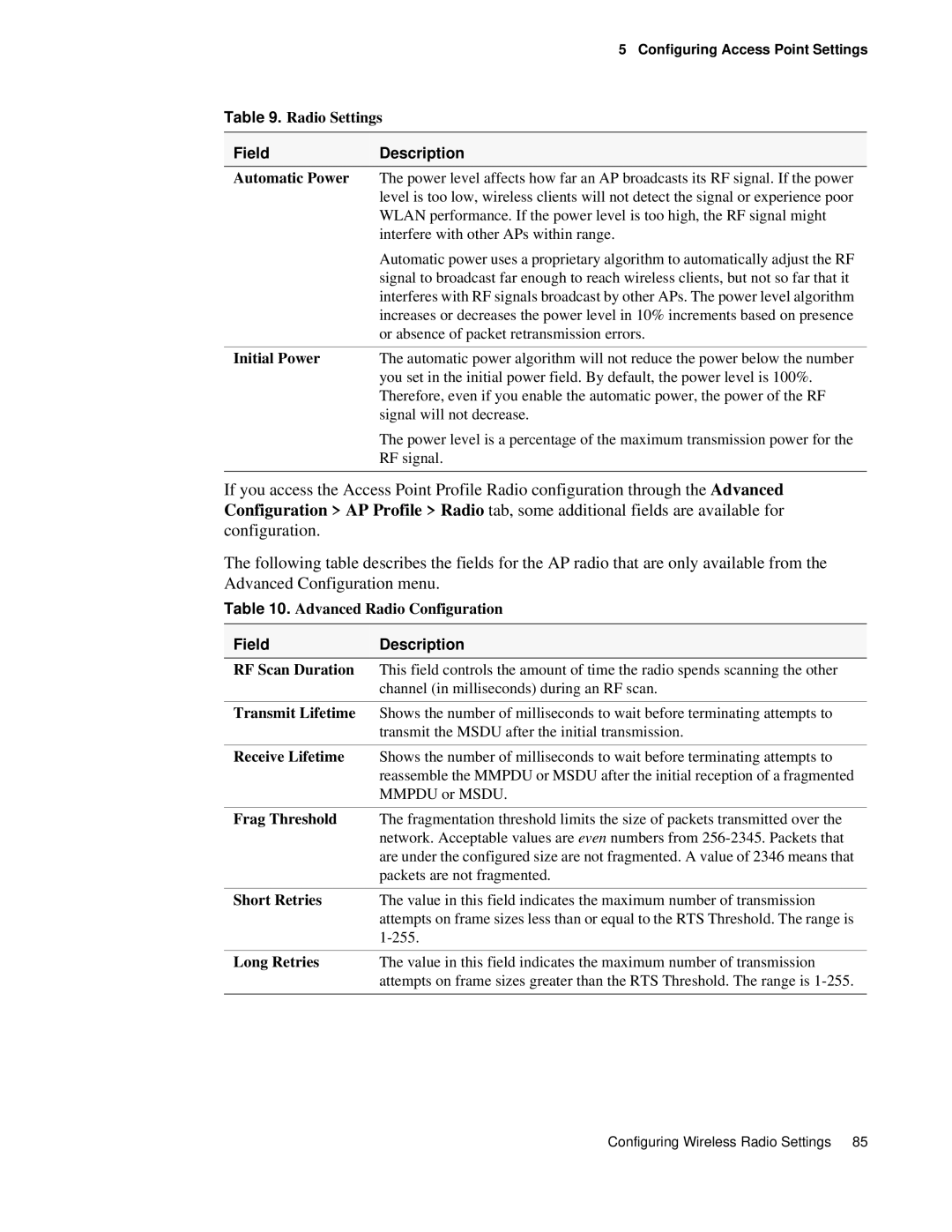
5 Configuring Access Point Settings
Table 9. Radio Settings
Field | Description |
Automatic Power | The power level affects how far an AP broadcasts its RF signal. If the power |
| level is too low, wireless clients will not detect the signal or experience poor |
| WLAN performance. If the power level is too high, the RF signal might |
| interfere with other APs within range. |
| Automatic power uses a proprietary algorithm to automatically adjust the RF |
| signal to broadcast far enough to reach wireless clients, but not so far that it |
| interferes with RF signals broadcast by other APs. The power level algorithm |
| increases or decreases the power level in 10% increments based on presence |
| or absence of packet retransmission errors. |
|
|
Initial Power | The automatic power algorithm will not reduce the power below the number |
| you set in the initial power field. By default, the power level is 100%. |
| Therefore, even if you enable the automatic power, the power of the RF |
| signal will not decrease. |
| The power level is a percentage of the maximum transmission power for the |
| RF signal. |
|
|
If you access the Access Point Profile Radio configuration through the Advanced Configuration > AP Profile > Radio tab, some additional fields are available for configuration.
The following table describes the fields for the AP radio that are only available from the Advanced Configuration menu.
Table 10. Advanced Radio Configuration
Field | Description |
RF Scan Duration | This field controls the amount of time the radio spends scanning the other |
| channel (in milliseconds) during an RF scan. |
|
|
Transmit Lifetime | Shows the number of milliseconds to wait before terminating attempts to |
| transmit the MSDU after the initial transmission. |
|
|
Receive Lifetime | Shows the number of milliseconds to wait before terminating attempts to |
| reassemble the MMPDU or MSDU after the initial reception of a fragmented |
| MMPDU or MSDU. |
|
|
Frag Threshold | The fragmentation threshold limits the size of packets transmitted over the |
| network. Acceptable values are even numbers from |
| are under the configured size are not fragmented. A value of 2346 means that |
| packets are not fragmented. |
|
|
Short Retries | The value in this field indicates the maximum number of transmission |
| attempts on frame sizes less than or equal to the RTS Threshold. The range is |
| |
|
|
Long Retries | The value in this field indicates the maximum number of transmission |
| attempts on frame sizes greater than the RTS Threshold. The range is |
|
|
Configuring Wireless Radio Settings 85
